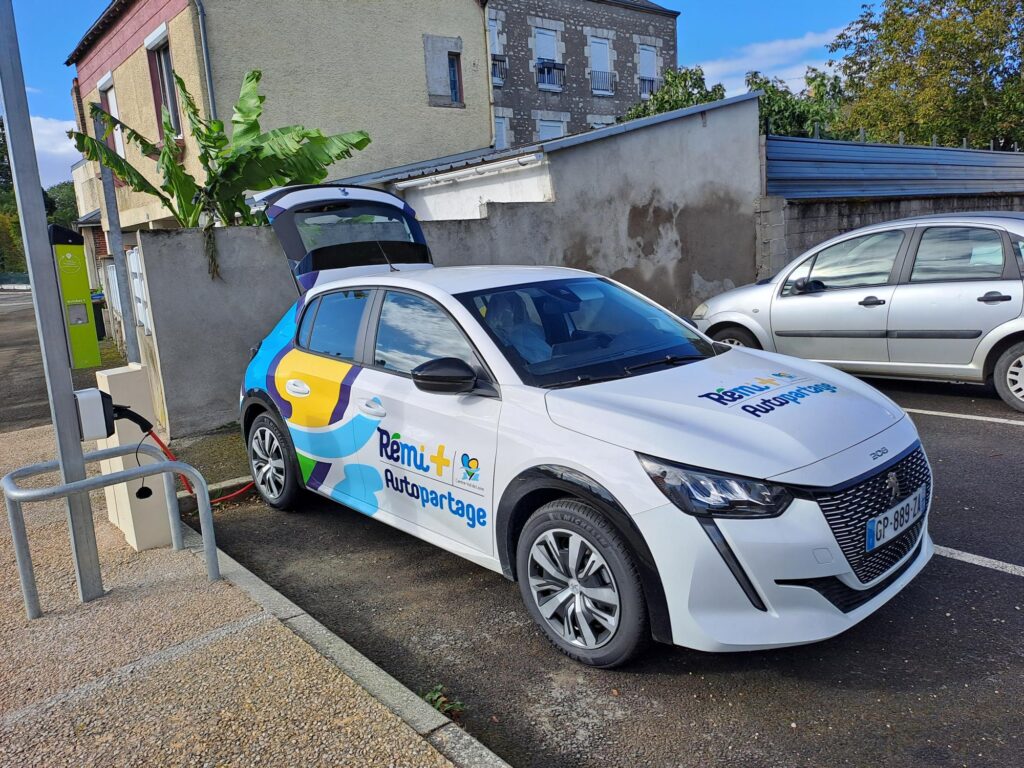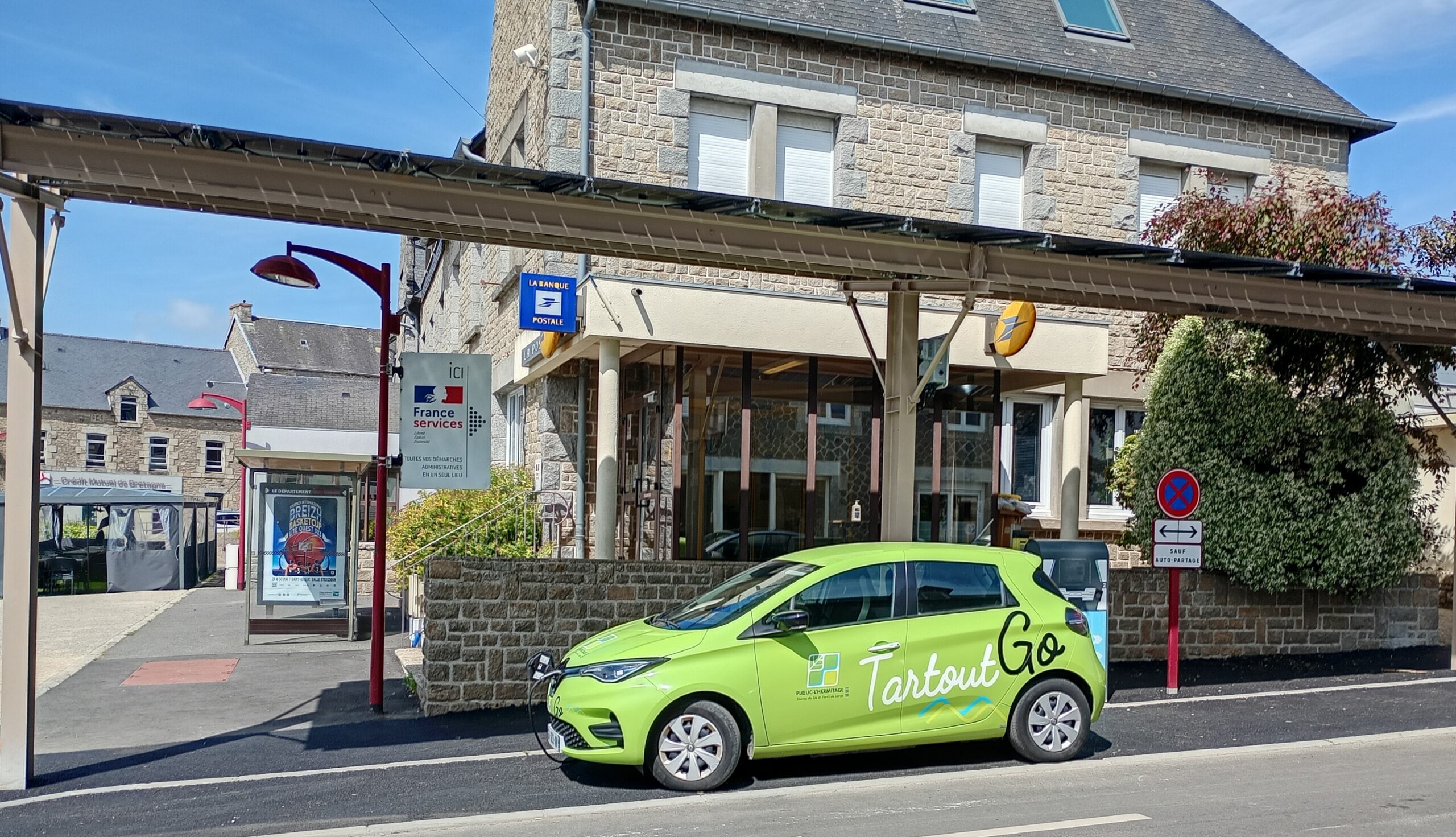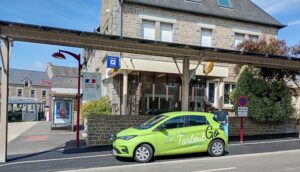As cities across Europe strive to decarbonise transport, car sharing is a key enabler of sustainable urban mobility. Specialists in electric vehicle (EV) carsharing and smart charging, French startup Clem is supporting cities across Europe to transition to a cleaner and greener future. Clem’s mobility-as-a-service end-to-end solution is not only encouraging a reduction in the total number of vehicles on our roads but also in emissions by promoting a shift to EVs. It also leads to a decrease in car dependency and better use of public space.
However, the rise in shared EV fleets brings new challenges, particularly related to charging infrastructure demand and energy management. As part of the EIT Urban Mobility co-funded project ARIA, Clem is piloting a solution that integrates artificial intelligence (AI) with e-mobility. Focusing on car-sharing operators and charging points, the project is piloting an energy flexibility platform that will optimise charging schedules, support peak shaving, and enhance self-consumption of solar energy.
The case for car sharing
In the UK, on average, privately owned vehicles are often parked or go unused for 96% of the time[1]. Car sharing is one of the models that support the shift to more sustainable mobility, with each shared car on average replacing 27 private cars[2]. According to CoMoUK, 1.8 billion car kilometres could be reduced each year in the UK, reducing emissions by 297 kilotons of CO2 emissions per year.
The benefits of car sharing go beyond the reduction in the use of private vehicles. Studies show that people that use car sharing also use forms of more sustainable transport at higher rates than national averages. It has been shown that 36% of car share users also used a bicycle at least once a week compared to the national average of 12% in England[3]. The same was observed for public transport. Reports show that 55% and 53% of car share users also use the train and bus, respectively, compared to national averages of 9% and 21%[4].
Driving the energy transition
Whilst car sharing is a model that cities can embrace to support the transition to a cleaner and greener future, electric car-sharing schemes can often face operational hurdles. These challenges include ensuring vehicles are reliably charged and available when users need them, while also avoiding costly peak electricity tariffs and overloading local grids. Conventional charging systems lack the flexibility to respond to these fluctuations and can limit the efficiency and scalability of EV car sharing.
For municipal operators and businesses deploying car-sharing services, the complexity of managing EV fleets, charging infrastructure, user interfaces, and energy loads often requires more than off-the-shelf hardware. A tailored, integrated solution that is flexible, interoperable, and scalable is needed.
Smart charging as a catalyst for change
French startup Clem is addressing these challenges with a comprehensive mobility-as-a-service end-to-end solution. The solution blends car sharing, smart charging infrastructure, a digital platform, and energy management. Integrating hardware, software, and services, Clem creates shared, flexible, and financially sustainable mobility systems for municipalities, businesses, and citizens. Operating in over 200 towns and cities in France, it also provides a white-label platform. This allows public and private sector clients to offer branded EV mobility solutions while Clem manages operations, billing and customer service.
A key element of Clem’s approach is its compatibility with V1G and V2G-ready technologies. V1G enables intelligent control over charging schedules, allowing vehicles to charge during off-peak hours or when surplus renewable energy is available. V2G takes this further by enabling energy stored in EV batteries to be fed back into the grid. This effectively turns EVs into mobile energy assets that contribute to grid stability and local energy resilience.
These smart charging capabilities optimise vehicle charging times to minimise strain on the grid and take advantage of cheaper, cleaner electricity. By connecting with renewable energy sources such as rooftop solar panels, Clem supports local decarbonisation efforts. This positions Clem as not just a mobility provider, but an active participant in the energy transition.

Clem and the ARIA project
In 2025, the ARIA project is piloting the FLEXEV solution, an optimisation platform that merges real-time data, AI and solar generation forecasts. The project aims to demonstrate that it is possible to charge light commercial vehicles (LCVs) without an increase in the carbon bill or impacting peak demand on the grid. The platform considers time-based tariffs, photovoltaic output, consumption and battery state of charge. The ideal power level and timing for each vehicle is then calculated, shaving power peaks, maximising solar self-consumption and delivering cost savings for operators.
ARIA brings together partners GoodMoovs, Municipality of Venlo, Factual Consulting and Barcelona City Council. Initial results showed that the entire LCV fleet tested at the Mercat de Provençals used more than 70% of the rooftop solar energy generated[5]. The project is running pilots in Brussels, Belgium; Venlo, Netherlands and Barcelona, Spain.
Integrating energy and mobility
As Europe accelerates towards a zero-emissions future, the convergence of electric mobility, car-sharing models, and smart energy systems is becoming increasingly critical. Clem and projects like ARIA demonstrate how car sharing can evolve into a climate-positive service when integrated with intelligent charging and renewable energy sources. Clem’s holistic approach provides a replicable, scalable model for cities aiming to decarbonise transport, stabilise their energy grids, and promote inclusive, shared urban mobility.
[1] https://www.racfoundation.org/media-centre/cars-parked-23-hours-a-day#:~:text=%E2%80%9CThe%20fact%20that%20cars%20are,%7C%20020%207389%200601%20(ISDN)
[2] https://cdn.prod.website-files.com/6102564995f71c83fba14d54/6810c3d44eec2eaf38bd6687_CoMoUK%20Annual%20car%20club%20report%202024.pdf
[3] https://cdn.prod.website-files.com/6102564995f71c83fba14d54/6810c3d44eec2eaf38bd6687_CoMoUK%20Annual%20car%20club%20report%202024.pdf
[4] https://cdn.prod.website-files.com/6102564995f71c83fba14d54/6810c3d44eec2eaf38bd6687_CoMoUK%20Annual%20car%20club%20report%202024.pdf
[5] https://www.clem-e.com/post/aria-accelerating-smart-charging-for-decarbonised-urban-logistics?lang=en




